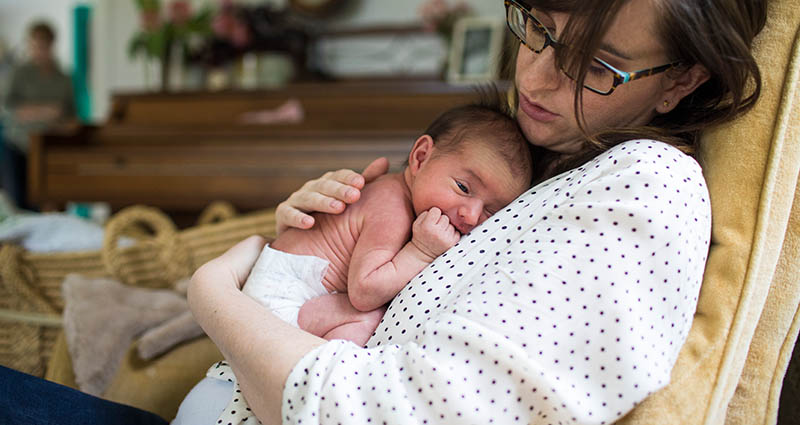Baby blues: how to cope with feeling emotional after pregnancy

The changes your body has gone through both during and after pregnancy are immense. If you are feeling different emotions—sadness, sleep difficulties and anxiety—as you adjust to life with a new baby, you’re not alone.
“It’s normal for new moms to feel sad and overwhelmed after giving birth. They have undergone hormonal changes and are faced with adjusting to life caring for a dependent human being,” says Dr. Desreen Dudley, clinical psychologist, licensed therapist and Teladoc Senior Behavioral Health Quality Consultant.
If emptiness or sadness becomes extreme or lasts for longer than two weeks, it’s more than a case of the “baby blues.” Feelings like this that persist might be postpartum depression.
It’s important to be aware of the symptoms of postpartum depression. That’s so that you can get treatment as soon as possible. One in 9 new parents experiences postpartum depression. Even though postpartum depression is common, it is a serious mental illness that can impact your health and interfere with your life.
Symptoms of postpartum depression to watch out for
If you have any of the following symptoms for more than two weeks, notify your doctor:
- Feeling restless or moody
- Feeling sad, hopeless or overwhelmed
- Frequent crying
- Thoughts of hurting yourself or the baby
- Feeling uninterested in or disconnected from the baby
- Having no energy or feeling unmotivated
- Over- or undereating
- Sleeping too much, or feeling unable to sleep
- Trouble focusing
- Memory problems
- Feeling guilty or worthless
- Feeling uninterested in activities you used to like
- Withdrawing from friends and family
- Having persistent headaches, pains or stomach problems
Postpartum rage is a related, even more serious condition. “Postpartum rage refers to the irritability and anger that some new parents may experience that feels difficult to control,” says Dr. Dudley.
Red flags for postpartum rage
Red flags for postpartum rage include:
- Being quick to anger over slights
- Lashing out with verbal and physical aggression
- Obsessively thinking upsetting thoughts
- Violent thoughts or the urge to hurt others
- A flood of emotions that feels impossible to regulate
If you experience symptoms of these conditions, don’t hesitate to reach out to someone for help. “It can be debilitating for new parents, decreasing their ability to manage their lives and care for their baby,” says Dr. Dudley. They are treatable with both psychotherapy and medications or a combination of both, she says. You and your provider can figure out the source of your symptoms and how to best treat them.
One-on-one emotional support can help you get through the challenges of postpartum life. Teladoc Health offers online therapy services on your schedule. Talk with experts by phone or video at a time that works best for you. Get support for a wide range of mental health needs like anxiety, stress, depression or just not feeling like yourself. Take our short quiz to find out if therapy is right for you.
Source:
https://www.womenshealth.gov/mental-health/mental-health-conditions/postpartum-depression
Was this article helpful?
Don't wait! Unlock a healthy, happy new year, at no cost to you.
This content is not intended to be a substitute for professional medical advice, diagnosis or treatment. Always seek the advice of your physician or other qualified health provider with any questions you may have regarding a medical condition.
